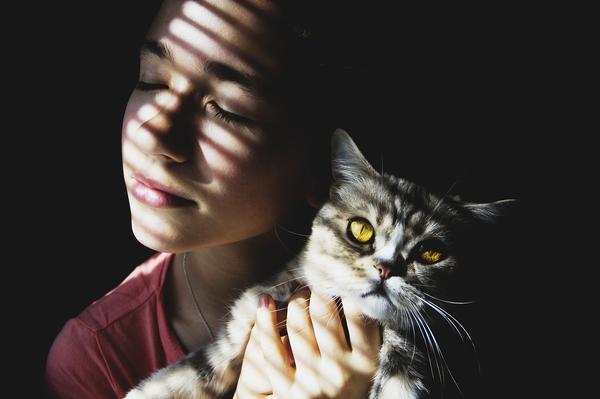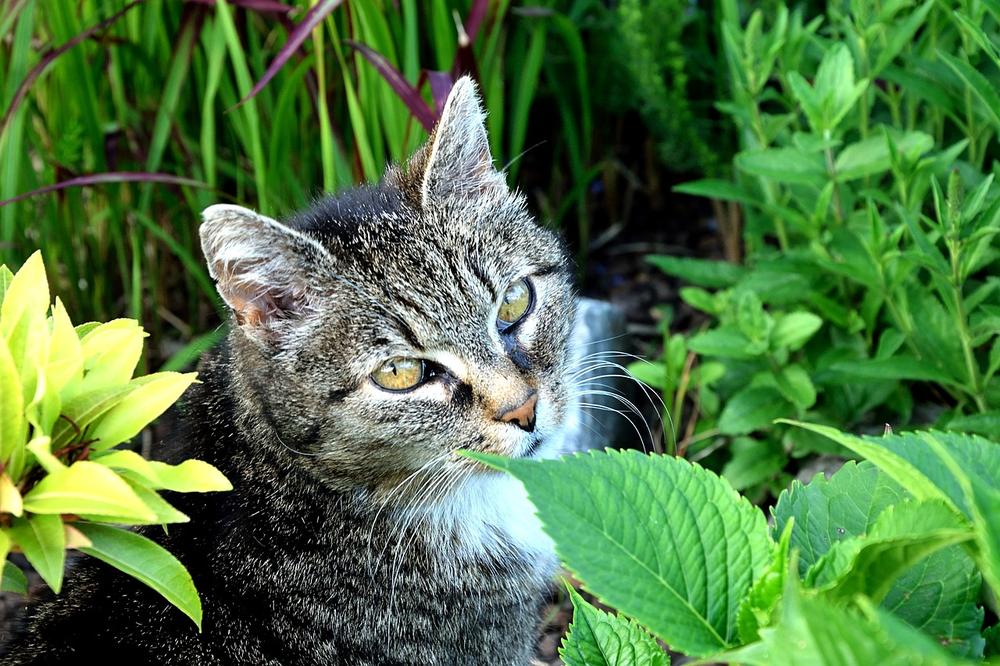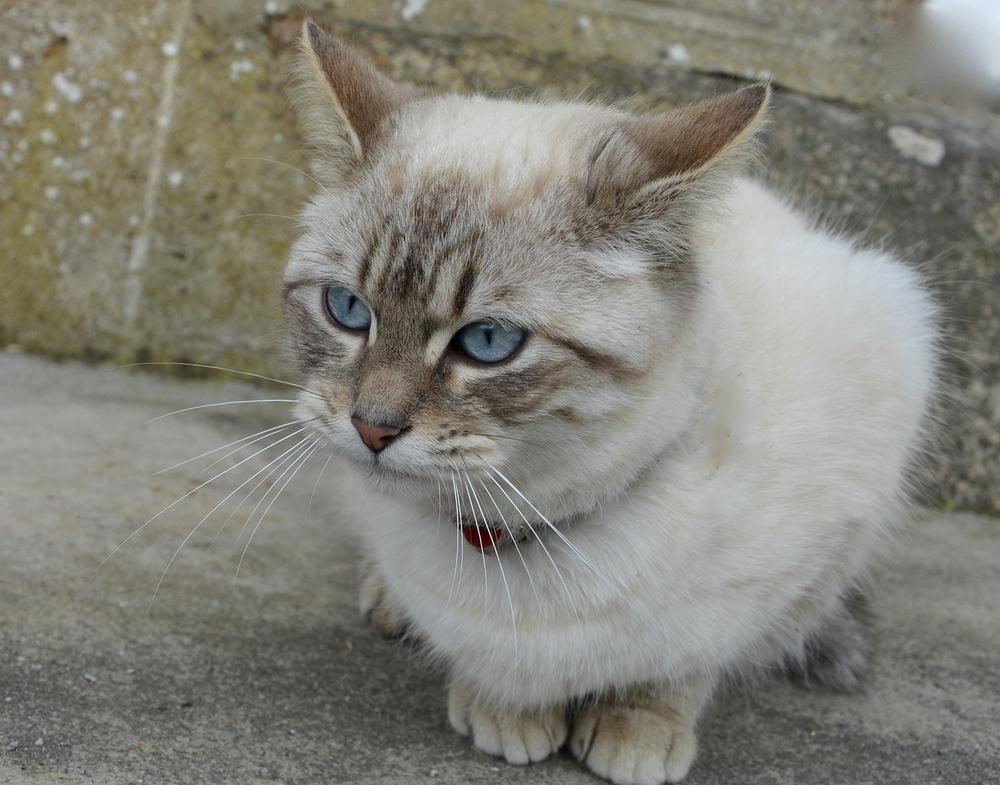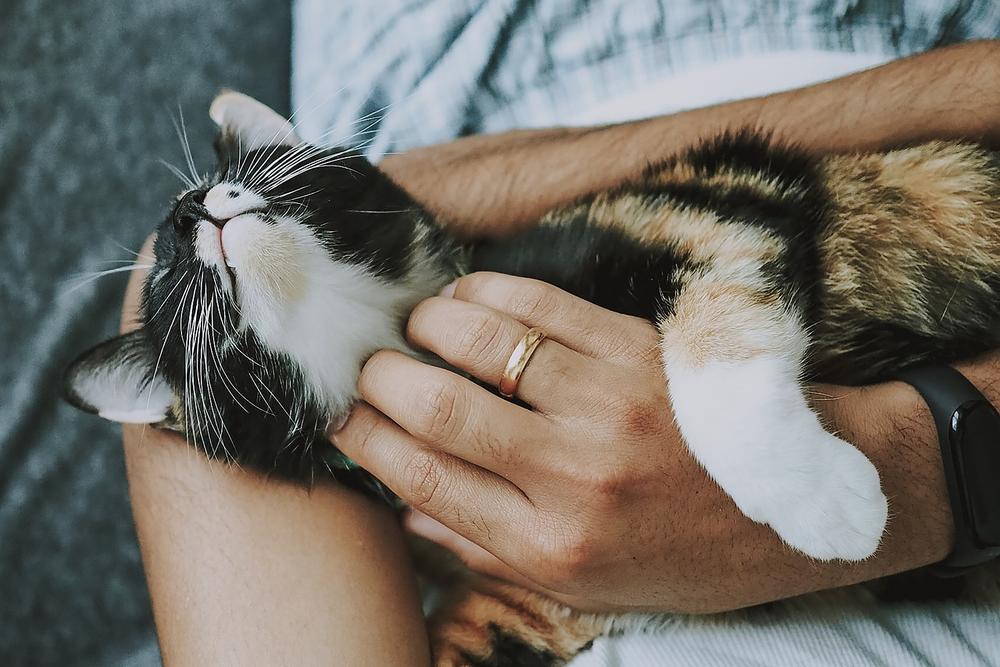Do Female Cats Spray to Mark Their Territory?

Just imagine:
You come home to find an odd smell lingering in the air, and you notice a suspicious wet spot on your couch. 😮
Concern grows heavy in your heart.
Could your sweet little female cat be secretly spraying?
Let's unravel this mystery together.
Understanding the Reasons Behind Female Cat Spraying
Female cat spraying is a behavior that many cat owners find frustrating and puzzling.
However, understanding the reasons behind this behavior can help you address the issue and create a more harmonious living environment for you and your furry friend.

Here are some key points to consider:
- Cats spray to mark their territory. By spraying urine on vertical surfaces like walls and furniture, cats establish familiarity within their environment.
- While urine marking is more common in intact male cats, female cats can also engage in spraying behavior.
- Stress and anxiety can trigger spraying. It's important to identify and address any potential sources of stress in your cat's life.
- Litter box issues can contribute to spraying. Make sure the litter box is clean, easily accessible, and meets your cat's preferences.
- Medical conditions such as urinary tract infections or bladder stones can cause cats to spray. If you suspect a medical issue, consult with your veterinarian.
- Spaying female cats can reduce the likelihood of spraying behavior. 😺
- Inappropriate elimination, where a cat urinates outside the litter box, should not be confused with spraying. These behaviors have different causes and require different approaches to resolve.
Taking into account the causes of female cat spraying allows you to implement suitable actions in order to reduce or eliminate this conduct, resulting in a home environment that is more joyful and serene for both you and your feline friend.
Main points I'll expand upon further down this article:
- Female cats can spray, especially when they reach sexual maturity.
- Spraying is the deposition of small amounts of urine on vertical surfaces.
- Spraying allows cats to mark their territory and feel more secure.
- Female cat spraying can occur for various reasons, including instinct and social factors.
- Effective strategies to discourage spraying include spaying, managing stressors, and providing environmental enrichment.
- Neutering can reduce spraying behavior, but some spayed females may still spray.
- Proper litter box hygiene and using pheromone sprays can help reduce spraying.
- Multiple cat households may experience more spraying, which can be controlled through neutering and appropriate introductions.
- Small amounts of urine or stool outside the litter box may indicate medical conditions.
- Seek personalized veterinary advice for your cat's specific situation.
For female cats, spraying is not solely a behavior associated with males.
In fact, hormonal fluctuations during the estrous cycle can significantly increase the likelihood of spraying in unspayed females.
Let's dive deeper into why this behavior commonly occurs among female cats and what you can do about it...
The Impact of Hormonal Changes on Female Cat Spraying
Hormonal fluctuations during the estrous cycle can make a female cat more likely to spray, especially if she hasn't been spayed.

This behavior generally begins around 6 months of age when female cats become sexually mature. It's not uncommon for female cats to engage in spraying.
Understanding these factors can help you better navigate this common issue with your feline companion.
If you have an unspayed female cat or notice signs of spraying, consider speaking with your veterinarian about potential solutions that can alleviate this behavior.
The Role of Scent in Cat Communication and Marking
Scent plays a crucial role in cat communication and marking. Cats use pheromones to communicate with other cats and mark their territory. Spraying, urine, and even poop are common methods of communication. Keeping windows closed and using scent-mimicking products can help prevent unwanted marking behavior.
Cats love scent and use it to communicate.
It's a big deal for them.
They have chemicals called pheromones that other cats can sniff out.
Pretty cool, huh?
Spraying is one way they mark their turf.
But guess what?
It's not just the boys who do it. The ladies get in on the action too, especially if they're not fixed or they feel threatened.
Yep, even your female kitty can spray. Surprise!
When they spray, they leave a little bit of pee on walls or furniture.
It's like saying, "Hey, this is my spot, so back off!"
Actually, spraying helps them feel safer in their territory.

And that's not all.
Cats also use urine and sometimes even poop to talk to each other.
I know, it grosses us out, but it's totally natural for them.
Now, if you want to keep your indoor cat from picking up scents outside, close those windows!
Open windows let all sorts of smells waft in, which can make your cat want to spray or leave their mark.
Or you can try these fancy products that mimic the smell a cat releases when they rub their cheeks on things.
These products trick your cat into thinking they've already marked their territory, so they're less likely to spray.
And let me tell you, cat spray stinks.
It has a strong and funky odor.
So if you catch any weird smells hanging around your house, it might mean your cat is talking to other felines through spraying.
But wait, what about spraying in female cats?
Can they really exhibit this behavior too?
Let's dive into the fascinating world of feline communication and marking to find out!
Social and Territorial Aspects of Female Cat Spraying
| Aspect | escription |
|---|---|
| Social hierarchy | Female cats may spray in order to establish their dominance in a multicat environment. This behavior allows them to mark their territory and assert their position within the social structure. |
| Conflict with other cats | Spraying can also occur as a response to conflicts with other cats. If there is tension or competition for resources such as food, litter boxes, or resting areas, a female cat may resort to spraying as a way to communicate her territorial boundaries and claim ownership. |
| Disruptions in routine | Changes in a female cat's routine, such as moving to a new home or the introduction of a new pet, can trigger spraying behavior. Female cats are sensitive to disruptions in their environment, and spraying may serve as a means to restore familiarity and establish control. |
Female cats spraying is not solely a behavior exhibited by male cats but can also be done by female cats. This may come as a surprising fact to many.
The act of spraying in cats is often associated with social and territorial aspects known as feline conflicts, where the need to establish dominance triggers this behavior.
Interestingly, whether your cat is male or female does not matter when it comes to spraying.
Spraying usually occurs in environments where multiple cats coexist and resources are limited, causing competition among them. In such situations, cats resort to spraying as a means of marking their territory and asserting their dominance.
Therefore, if you have more than one cat at home, don't be surprised if your female feline friend engages in this spraying behavior.
Moreover, spraying doesn't just occur due to conflicts with other cats. Disruptions in your female cat's routine or even the presence of unfamiliar cats in her territory can also lead to spraying.
In essence, your female cat is simply trying her best to protect her space when she feels threatened.
On top of that, territoriality plays a significant role in the likelihood of spraying.
Cats that are highly territorial are more likely to spray frequently.
Thus, if your female cat exhibits strong protectiveness over her space, finding sprays here and there shouldn't come as a surprise.
Furthermore, the reproductive state of female cats contributes to their tendency to spray. Unneutered females are commonly observed engaging in this behavior.
Moreover, female cats living in households with multiple feline companions are also prone to spraying.
You have to understand that spraying in female cats is a complex issue influenced by various social and territorial factors.
If your female cat displays this behavior, you need to address these underlying factors to minimize or resolve it.
Therefore, if you want to better understand why a male cat may be attacking a pregnant female and how to address this behavior, I highly recommend checking out my article Male Cat Attacking Pregnant Female.
It provides valuable insights and practical solutions to help you navigate this delicate situation.
Effective Strategies to Discourage Female Cat Spraying
Environmental enrichment and spaying/neutering
If your female cat is spraying, try these strategies to discourage the behavior.
Provide plenty of toys and scratching posts to redirect her instincts.
It's also a good idea to have your female cat spayed or neutered.
This can greatly reduce spraying motivation in many cats. Some may still spray even after being spayed, as each cat is unique.
What works for one might not work for another.
Managing stressors and identifying triggers
To help your cat, manage stressors in her environment.
Keep routines consistent and minimize sources of anxiety. Block views from windows and offer plenty of toys and cat trees. You can also use synthetic feline pheromones to decrease stress marking.
Hygiene and deterrence methods
Maintain litter box hygiene to discourage spraying. Clean it regularly and experiment with different types of litter. Use odor neutralizing products or citrus scents on sprayed areas.
Avoid ammonia-based cleaners, as they can make the problem worse. Pheromone sprays or diffusers can prevent re-marking.
If there are outdoor cats around, use deterrence methods to keep them away. This creates a comfortable and enriched environment, minimizing stress levels and preventing spraying.
Each cat is unique, so it may take some trial and error to find the best strategies for your female cat.
Managing Female Cat Spraying in Multi-Cat Environments
To control female cat spraying in multi-cat environments, there are a few strategies you can use.
- Give each cat their own space by providing separate litter boxes and feeding areas. This way, they won't feel the need to compete and spray.
- Neuter both male and female cats to minimize spraying. This procedure lowers hormone levels that trigger marking behaviors.
- Prevent your cats from seeing outside stimuli that might make them spray by blocking windows with curtains or blinds.
- Address any conflicts between cats by temporarily separating them and giving them their own litter boxes and sleeping areas.
- If cats have been separated due to conflict, gradually reintroduce them under supervision and encourage positive experiences like feeding and play sessions.
- In households with many cats, designate certain areas for marking and provide vertical scratching posts and pheromone sprays to redirect the urge to spray.
- Take precautions when introducing new cats to prevent spraying, such as gradual introductions and ensuring ample resources for each cat.
- Consider neutering all cats in the home to prevent spraying altogether. It's a long-term solution that can be effective.
- Use calming products like Feline Multicat to reduce aggression and spraying. These products release feline pheromones that create a calming effect.
You can control female cat spraying in multi-cat settings and establish a serene living space for your cats by putting these strategies into practice. ✨
Now, you might be wondering how to tell if your female cat's spraying behavior is a result of a medical condition or simply behavioral.
You have to understand the difference in order to provide the appropriate care and treatment for your feline friend...
Identifying Potential Medical Issues in Spraying Female Cats
When your female cat starts doing strange things with her urine, you need to pay attention. 🐱
This could be a sign of some serious medical problems.
Here's what you should please bear in mind:
- If your cat is spraying, it's not the same as peeing in inappropriate places. Spraying can indicate issues with the lower urinary tract or other medical conditions related to it.
- Look out for small amounts of pee outside of the litter box. It could mean that there's something wrong with her lower urinary tract or she's avoiding the litter box altogether.
- If you find poop outside the litter box, it might be because of colitis, constipation, or some other medical condition.
- To figure out what's really going on, you need to take your cat for a proper physical examination and get some lab tests done by a vet.
- When deciding how to treat your cat, remember to consider her background and history.
- Take into account factors like dosage, cost, and potential side effects when choosing a treatment plan.
- Use a fancy black light to uncover hidden puddles of urine that you can't see with your naked eye.
- It's also important to rule out any underlying medical issues that might be making your cat anxious.
So, if you see anything weird happening with your female cat's pee, don't hesitate. Go see a vet to find out if there's a real medical problem that needs attention.

Now, you might be wondering how to ensure your female cat receives the necessary veterinary care.
Well, regular checkups play a crucial role in assessing her overall health and identifying underlying medical issues.
Let's explore how personalized veterinary advice can be easily obtained through various affiliated services such as Ask-a-Vet.
Keep reading to discover the convenience and benefits of this approach!
The Importance of Veterinary Check-Ups for Female Cats
You absolutely need to make sure your female cat gets regular check-ups at the vet, just like we humans do.
These check-ups are crucial for her all in all health and wellbeing.
You see, just like us, cats can develop all sorts of medical issues that may not be very obvious without a thorough examination.
That's why it's so important for you to seek personalized advice from professionals who really understand feline health.
Let me break down for you why these check-ups are absolutely essential:
- First, they help detect any underlying health problems that may be hiding beneath the surface. Veterinarians have the skills to identify conditions or diseases that might not be easily noticed by the naked eye.
- They also allow vets to monitor your cat's reproductive health. Female cats are prone to reproductive issues like ovarian cysts or complications during pregnancy. Regular check-ups catch these problems early on, giving them a better chance of being successfully treated.
- Veterinary check-ups can even prevent behavioral problems in your cat. Sometimes, physical discomfort can cause cats to start spraying urine. By ruling out any underlying medical causes through regular exams, you can nip these behaviors in the bud.
- Keeping your cat up-to-date with vaccinations is crucial. It protects her from potentially life-threatening diseases. So don't skip those shots!
- Finally, regular visits to the vet provide preventive care for your female cat. This means things like dental cleanings and parasite prevention to keep her healthy and happy.
When it comes to your cat's health, always consult with a professional veterinarian who knows what's best for your furry friend.
And that wraps up today's article.
If you wish to read more of my useful articles, I recommend you check out some of these: Why Does My Cat Hate Other Cats, Why Do Cats Go Crazy When It Rains, Why Does My Cat Sound Like a Pigeon, and How to Discipline a Cat for Peeing Outside the Litter Box
Talk soon,
-Sarah Davis